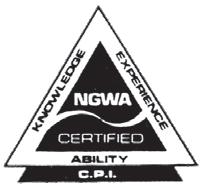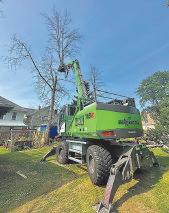Buying & Selling real estate






8 - 10 - 15 - 20 - 30 - 40 Cu. Yd (716)355-4319


www.prowasteservicesinc.com


8 - Yard Container
Used for small roofing jobs, bathroom remodels, garage clean outs, and ideal for spring cleaning.
Dimensions: Height 4ft Width 5ft Length 10ft
10 - Yard Container


Used for roofing jobs, kitchen remodel, bathroom remodel, and small cleaning out projects.
Dimensions: Height 3.5ft Width 8ft Length 12ft
15 - Yard Container
Used for roofing jobs, kitchen remodel, bathroom remodel, two car garage clean outs, or for cleaning out a small home.
Dimensions: Height 3.5ft Width 8ft Length 16ft
20 - Yard Container
Used for roofing debris, window replacement, construction/siding jobs, scrap metal, deck removal, or two car garage clean outs.

Dimensions: Height 3.5ft Width 8ft Length 22ft
30 - Yard Container
Used for larger construction or remodeling projects requiring the removal of large amounts of debris, including scrap metal.
Dimensions: Height 6ft Width 8ft Length 22ft
40 - Yard Container


Used for larger construction or demolition projects, as well as whole house clean outs.

Dimensions: Height 7ft Width 8ft Length 22ft





716.386.3288
Maple Springs Tree Service is fully licensed and insured so you can put your mind at ease when your trees are in our hands.

Since 2005, Maple Springs Tree Service has been providing Chautauqua County, NY and Jamestown, NY with exceptional tree services and stump removal. With an eye for detail and a commitment to quality, we are your obvious choice for tree service throughout the region. If your trees are dead, decaying, or overgrown, our team of highly-skilled and trained technicians will come and address your issue. We will trim dangerous branches, prune your bushes, and even remove trees with severe problems.




Courtesy of Metro Creative
Owning a home is a dream shared by millions of people. Investing in property that can be owned within 15 to 30 years of closing on the home makes more financial sense to many than continuing to rent and having little to show for it over time.
The first step to take when planning to enter the real estate market is to ensure that your finances are in order. Various factors will influence individuals’ ability to secure a mortgage, and these are some ways to make yourself more attractive to prospective lenders.
• Check your credit report. Lenders will check your credit report before deciding if you are a risk or a safe bet for a mortgage. So it makes sense to check your credit report prior to speaking with a lender. The Federal Trade Commission says everyone can get one free credit report a year from each of the three credit reporting bureaus. If you split it up, you can get a credit report every four months so you are aware of anything that may adversely affect your ability to get a mortgage loan. A credit (FICO) score that’s too low may disqualify you from a mortgage. Each lender sets its own thresholds when they price and approve loans, but the higher your credit score, the better.
• Improve credit standing. One way to improve your status

in the eyes of lenders is to pay down credit card balances to reduce your credit utilization ratio. A high utilization occurs when there is a high balance in relation to the credit limit, says Business Insider. Also, it may be wise to avoid any credit inquiries through new credit card applications for several months before applying for a loan, as these inquiries can affect your score.
• Be realistic about what you can afford. Do your homework and determine your target interest rate and monthly payment as well as what down payment you can afford. It will help you research potential lenders and provide an idea of what may be offered to you.
• Pay bills on time. Paying bills promptly not only helps you avoid late fees, but also positively affects your credit. The financial resource The Mortgage Reports urges diligence when paying rent, as late rent payments can bar you from getting a mortgage. Lenders look at rent history as the biggest indicator of whether you’ll make mortgage payments on time.
These are some of the ways to make a prospective home buyer look better in the eyes of mortgage lenders. Individuals can speak with financial professionals about what else they can do to improve the possibility of securing mortgages at the best rates possible.

Courtesy of Metro Creative
Consumer efforts to be more eco-conscious are more and more noticeable. For proof of that, one need look no further than the increase in vehicle charging stations. Such stations are more accessible than ever and illustrate that consumer preference is increasingly leaning toward products that leave as small a carbon footprint as possible. Another indicator of a growing interest in eco-friendly products is the popularity in energy-efficient homes. In fact, a recent survey from the National Association of Home Builders found that energyefficient features are among the most sought-after “must-haves” among homebuyers. Among those surveyed, 83 percent desired
Energy Star-rated windows, 81 percent wanted Energy Starrated appliances and 80 percent preferred energy-efficient lighting. Though eco-conscious sensibilities compel millions of homeowners to make their homes more energyefficient, that’s not the only reason to upgrade your home. The following are a handful of the many benefits of energy-efficient homes.
• Save money: Inflation was one of the biggest stories of 2022, as the cost of living rose dramatically in the wake of world events. According to data from the U.S. Bureau of Labor Statistics, inflation led to an overall 6.5 percent increase in prices. But that increase was dwarfed by the cost of electricity, which increased by 14.3 percent in 2022. Energy-efficient appliances
can help homeowners overcome that spike, as the U.S. Department of Energy indicates upgrading to such products can help homeowners reduce their energy costs by as much as 30 percent.

• Improve resale value: As the NAHB survey indicates, modern homebuyers want energy-efficient homes. They’re also willing to pay more for such homes. Research from the mortgage lender Freddie Mac found that homes with energyefficient ratings sold for nearly 3 percent more on average than homes without such ratings.
• Live healthier: The benefits of energy-efficient homes aren’t just economic, though healthrelated benefits certainly produce an economic incentive as well. According to the American Council
for an Energy-Efficient Economy, insulation and air sealing protect individuals from heat waves and other ripple effects of climate change. The ACEEE notes that weatherization can improve indoor air quality and comfort, a notable benefit for asthma sufferers and seniors. In fact, the ACEEE estimates that integrating energy efficiency programs in homes could reduce seniors’ risk for falls in their homes, potentially saving $2 billion in fall-related health care costs over the next decade, and improve asthma outcomes, which could reduce health care costs by as much as half a billion dollars.
Energy-efficient products and practices pay numerous dividends, making them a worthy expenditure for any homeowners looking to upgrade their homes.
Courtesy of Brandpoint
Have you ever wished homeownership came with a user’s manual? There’s only so much you can prepare for, whether you’re buying your starter home, forever home - or something in between. It’s all too common to face unexpected expenses, including ongoing maintenance of your property with hidden added costs. In a new survey conducted in collaboration with OnePoll, TruGreen found that nearly half of homeowners (44%) invested more money in their home during the first year of homeownership than they expected.
To equip homeowners with
more realistic expectations before purchasing a new home, TruGreen®, the nation’s leading lawn care provider, shares the top three lessons homeowners have learned.

1. Home maintenance is crucialand will cost you
No matter what type of home you buy - from fixer-uppers to move-in ready - you should expect some repairs and replacements, plus routine maintenance. While this will vary depending on your home’s age, size and condition, rest assured that most homes require regular care to help prevent long-term (and potentially expensive) damage.
continued on page 7
Casella has been keeping neighborhoods in New York clean with reliable garbage pickup service, recycling programs and roll trash dumpster rentals. Our garbage pickup in New York is built upon the same solid foundation of reliable service and quality customer care that grounds all Casella waste control services. For reliable garbage pickup services in New York you can count on to accommodate your needs, call Casella today.

Jamestown Local: 716-512-2206 Fredonia Local: 716-490-4193


So, how much maintenance is required when you purchase a home? In the survey, homeowners’ top expenses during their first year as a homeowner were appliance replacements (56%), exterior repairs such as windows (53%) and major repairs like roofing (52%). Furthermore, when prioritizing maintenance, homeowners mainly focused on their home’s exterior, such as patios (42%) and their yard or lawn (39%).

Ensuring you have the means to handle unanticipated repairs and routine maintenance before you buy will help prevent financial stress down the road.
2. Investing in your property to create a home






When you first move into your new house, don’t get discouraged if you don’t initially feel like you’re really “home.” The homeowners surveyed spent an average of two and a half years upgrading their homes before they were pleased with it. Despite the time and money they invested in the property - or perhaps because of it - nearly 71% of homeowners said they now feel like they’ve found their forever home.
Your house is more than just a place to call home, it’s also an investment. And if it’s managed properly, your home can also provide a great return on investment.
3. There will always be surprises - so don’t be afraid to call a pro
Even the most prepared homebuyer will encounter surprise expenses after signing on the dotted line. According to the survey, the average homeowner has encountered about four surprises or unexpected costs within their first year of homeownership. Beyond the surprise of unpredicted expenses, some

of these tasks may be new and create challenges for homeowners to handle on their own. In fact, 62% would call a professional for a home improvement project, and nearly one-third of homeowners would hire a pro for home maintenance.
Handing maintenance or improvement projects to the pros can be a smart move to ensure the job will be done well. It can prevent future problems and save time you’d rather spend enjoying your home. For example, hiring a professional service to handle your lawn care can allow for more free time to actually enjoy your outdoor space, while giving you a sense of pride in how great it looks.

“Buying a new home is a tremendous milestone that brings much to celebrate, but the new responsibilities of homeownership can also be stressful,” said Brian Feldman, senior director of technical operations at TruGreen. “As a new homeowner, there’s no need to waste time figuring out the best ways to maintain your home. To help tackle what can seem like an ongoing to-do list, you should consider partnering with the professionals.”
If you’re like the 75% of homeowners surveyed who believe it’s important that their yard or home’s exterior looks impeccable, consider partnering with an outdoor expert such as TruGreen to make your lawn look great.





Courtesy of Metro Creative


The home improvement industry has been booming for years, but forecasters are projecting a deceleration in 2023 and perhaps beyond. Estimates from the Home Improvement Research Institute, which is the leading market research resource for the home and building products industry, indicate that growth in the home improvement products market is expected to decelerate from 7.2 percent in 2022 to 1.5 percent in 2023. Inflation continues to affect consumer spending, and homeowners may be looking to spend less on renovations in the year ahead.
Minor upgrades that aren’t as costly as larger projects can still make a big difference, especially among prospective buyers. When looking for minor upgrades that can help sell a home, homeowners can rely on Remodeling magazine’s annual “Cost vs. Value Report.” That report analyzes costs for an assortment of remodeling projects and determines the value of those projects at resale. Though resale value depends on a host of variables, including location, the following are some relatively minor exterior upgrades that impress buyers and provide a strong return for homeowners.
• Garage door replacement: Garage doors matter more than sellers may recognize, as various real estate professionals note that buyers appreciate homes with updated garage doors. That’s good news for homeowners, as the “2022 Cost vs. Value Report” indicated homeowners

recoup roughly 93 percent of their garage door replacement investment at resale. The average cost of such a job is right around $4,000, making this a budgetfriendly remodeling project.
• Window replacement: The cost of new windows will depend on just how many windows must be replaced. But there’s no denying buyers like the idea of low emissivity (low-E) windows, which can cut energy bills by a significant amount over time. The Office of Energy Efficiency & Renewable Energy estimates that heat gain and heat loss through windows is responsible for between 25 and 30 percent of residential heating and cooling energy use, so sellers who can tell buyers they have new low-E windows can emphasize those savings in home listings. The “2022 Cost vs. Value Report” indicates that homeowners recoup roughly two-thirds of their investment in new windows at resale.
• Landscaping: Well-maintained landscaping is another home exterior component that can make a strong first impression on buyers. A recent survey of nearly 7,000 realtors conducted by the National Association of Realtors found that upgrading a landscape recouped roughly 83 percent of homeowners’ initial investment at resale. In addition, 11 percent of realtors surveyed indicated that an upgraded landscape was the decisive factor that closed the deal for the house.
Updating a home’s exterior doesn’t have to bust homeowners’ budgets. Many affordable projects also provide a substantial return at resale.






Courtesy of Metro Creative
Specializing in Roofing & Siding

NYS Law Requires ALL JOBS to have Building Permits. We Are Fully Insured & Provide Certificates of Liability & Workman’s Compensation. Make
716-679-0474
The real estate market has been a wild ride in recent years. Sellers have cashed in on record-breaking profits, and buyers have had to compete against many others — sometimes in bidding wars — for a limited number of properties. Once listed, homes are selling fast. As interest rates rise and inventory increases, things are likely to change, though for some it did not come soon enough. Individuals who were lucky enough to find a new home this year may discover they now have little money to outfit those homes. Shoppers with new homeowners on their holiday shopping lists may want to help those loved ones outfit their homes this season. The following are some home-related gift ideas to get shoppers started.
card to a popular furniture store in the area will provide the headstart new homeowners need to secure sofas, dining sets, lamps, rugs, and more.
• Household tool kit: What better way to prepare new homeowners for the do-it-yourself projects and household repairs than with a tool kit? Home improvement retailers often package common tools needed in carrying cases or sets, but shoppers can grab separate items they think will be used and group them together into one gift. Pliers, screwdrivers, wrenches, a level, and measuring tape are good starter tools.
Callahan, Owner• Video/smart doorbell: Although the smart doorbell market began with only a handful of options, there’s now a bevy of manufacturers who make video and smart home doorbells. These doorbells serve the dual purpose of alerting homeowners to someone at the door, while providing surveillance of the comings and goings outside of the home. Depending on the product, a subscription may be needed to access video history. Doorbells range from $50 to $200 and more depending on features and resolution.
• Furniture gift card: There’s a good chance new homeowners will need to furnish new rooms in a home, particularly if they’re coming from an apartment or a smaller place. Many people also like to update furnishings when they move into new places. A gift
• Customized doormat: Give that new home additional curb appeal with a doormat customized with a special message or the new homeowners’ names, such as Welcome to the Smith Home. Other customizeable products include cutting boards and wall plaques.
• Programmable thermostat: A programmable or learning thermostat will help new homeowners save on their energy bills. Many thermostats now pair with smart home systems and phones and automatically adjust the temperature as needed to reduce energy consumption.
• Linens: A high thread count sheet set or plush Turkish cotton towels may not be something new homeowners think to get for themselves. But these luxurious gifts can make life at home more comfortable. Moving into a new home is an exciting yet expensive endeavor. Carefully curated gifts can tap into what new homeowners need the most.


Courtesy of Metro Creative
Remodeling with a return on investment in mind can be a smart strategy for homeowners, whether one is thinking about moving in the next few months or further down the road. Though this approach is an inexact science, in many instances, it’s savvy for homeowners to consider what buyers may want when planning home improvements.
Homeowners may be surprised to learn which renovations garner the best ROI at resale. The home loan and refinancing company RenoFi indicates that overall home improvement projects provide a 70 percent ROI on average. Many high-ROI projects add functional space and improvement. The following are some exterior renovations that help homeowners recoup the most money at resale, according to Remodeling magazine’s “2022 Cost vs. Value Report.”
1. Garage Door Replacement: 93.3 percent recouped of $4,041 cost
2. Manufactured Stone Veneer: 91.4 percent recouped of $11,066 cost




3. Siding replacement (Fiber Cement): 68.3 percent recouped of $22,093 cost
4. Window replacement (Vinyl): 67.5 percent recouped of $20,482 cost
5. Siding replacement (Vinyl): 67.2 percent recouped of $18,662 cost

6. Window replacement (Wood): 66.3 percent recouped of
$24,388 cost
7. Deck addition (Wood): 64.8 percent recouped of $19,248 cost
8. Entry Door Replacement (Steel): 63.8 percent recouped of $2,206 cost


The majority of renovations on Remodeling magazine’s list of the best investments are exterior renovations, making this area of a home a particular point of interest for homeowners. The only interior project that cracked the Top 10 ROI for projects was a minor midrange kitchen remodel.
Exterior renovations perhaps add the most bang for your buck because they’re not only functional, but also because they add immediate curb appeal. Much in the way it has been said people eat with their eyes first — which is why chefs spend so much time on elaborate plating — buyers will judge a property by how it looks when they arrive, even before they’ve stepped inside a home. In essence, home buyers often judge a book by its cover. A worn exterior may indicate to potential buyers that the home was not maintained, however false that assumption may be.
It’s important for homeowners to consider all factors before beginning a renovation. Certain projects offer a stronger return on investment than others, and that’s a significant consideration for homeowners thinking of selling their homes.

Courtesy of Brandpoint

When many buyers purchased homes during the height of the pandemic homebuying frenzy, they may have skipped adding a home inspection in an effort to win bidding wars. While this may have worked out for some, others were hit with hidden problems and expenses that would have been discovered through a proper home inspection. A thorough inspection can reveal hidden issues with a property, allowing you to make an informed decision about whether to proceed with the purchase or negotiate repairs.
“A home inspection is one of the most important steps in the home buying process,” said Adam Bakonis, Mercury Insurance product manager for homeowners. “It helps protect the buyer from purchasing a home with undisclosed problems and then being saddled with costly repairs.”
Licensed home inspectors can help identify potential problems. For example, a home inspector may be able to identify whether a roof requires repair or replacement. They may also find evidence of structural damage from water leaks or rain water drainage issues or evidence of land movement that could indicate a property’s foundation lacks stability.
“I’ve inspected and repaired thousands of buildings that had damages due to earthquakes, landslides, poor engineering
designs, and collapse issues from construction defects,” said Kyle Tourje, Structural Assessor for Alpha Structural. “The most obvious signs of structural or foundation damage is visible cracking in walls, ceilings or floors. Any sort of gaps or cracks on the outside of the house that catches the eye should also be noted. If someone who isn’t a trained expert can spot an uneven floor or substantial sloping, that’s a bad sign.”
Researching and creating a home inspection checklist before contacting an inspector will give you a general idea of what to look for. It can help identify significant issues and areas of concern in the house, which you can then discuss with the assessor. This can prepare you for any surprises that may arise and make you more informed about the condition of the home you are considering.
* Inspect the roof: Find out how old the roof is and ask questions about any damage or discoloration you see from ground level. Check to see if any nearby trees make contact with the roof as branches can cause damage to roofing tiles and falling leaves can easily clog gutters or impede the natural flow of water down the roof.
* Look for water damage: Water can rot wood, damage foundations and cause mold to grow. Look to see if anything would cause rainwater to flow
onto or under the house. Rain gutters should be clean and direct water away from the property. Water stains on ceilings, walls or floors could indicate a roof or pipe leak. Check for leaks or water stains inside sink cabinets and make sure they drain properly. Bubbling paint on a window frame could be evidence of water intrusion and a poor seal.
* Foundation: Problems with the foundation could prove costly. Watch out for big cracks in the ground, raised foundation or large cracks along the wall. Pay attention to any trees growing close to the house since roots underground can cause damage that you can’t easily see.
* Smart technology: Confirm that any smart home devices left behind by the previous owner including thermostats, security measures and voice-activated systems can be easily cleared and reset for your needs.
* Note the age of the home: Older
houses can be charming, but you might need to upgrade certain features. Original plumbing may need replacement and older windows may not be energy efficient. Wiring that has not been modernized could pose a fire hazard and may not be able to accommodate the multiple
appliances and systems used in many homes today.

Tips for home inspection day Bakonis offers some tips to get the most out of your home inspection:
* Be there. You don’t have to go to the inspection, but it is highly advised that you do so you can see
any potential problems for yourself.
* Be prepared. Bring an inspection checklist and jot down questions to ask the inspector.
* Check for disclosures. Review any seller disclosures you received before inspection day. Be sure to ask your inspector to look at those areas and verify repairs.
* Let the inspector work. While you may have concerns, avoid unnecessary interruptions during the inspection process.

* Make sure there’s time to ask questions. Set aside some time with your assessor after their initial inspection to go over any questions you may have.
The home inspection process is a crucial step for both buyers and sellers. It provides buyers with peace of mind, knowing that their investment is sound and free of any major issues. For sellers, it can help prevent a deal falling through by being proactive and identifying problems that may require repair.



Courtesy of Metro Creative
Ahome is the single biggest purchase most people will ever make. That’s perhaps become even more true in recent years, when the cost of homes has increased dramatically. The sticker price of a home may come as a shock to first-time buyers, but few homeowners purchase their homes in cash. Mortgages are a vital component of home ownership for the vast majority of buyers. Mortgages are loans obtained through the conveyance of property as security. When homeowners pay off their mortgages, the title of the property officially transfers to them from their lenders. Though most homeowners utilize mortgages to buy their homes, that does not mean the process is the same for everyone. A host of factors affect mortgage
terms, and there’s much prospective homeowners can do to secure the best agreement possible.

• Recognize why a low interest rate is important. Mortgage interest rates have drawn considerable attention in recent years, as rising inflation has led to rates that have reached their highest point in more than a decade. Even a seemingly small difference in interest rates can save or cost homeowners thousands of dollars, if not tens of thousands, over the course of a loan. For example, the financial experts at Bankrate. com note that the difference between a 5.5 percent interest rate and a 6 percent interest rate on a $200,000 mortgage is roughly $64 per month. That might not seem like a lot, but

on page 15

over the course of a 30-mortgage the borrower who gets the 6 percent loan will pay in excess of $23,000 more in interest than the borrower who secures the 5.5 percent loan. Recognition of the benefits of securing the lowest interest rate possible can motivate prospective buyers to do everything in their power to get a low rate.


• Work on your credit score. So how can borrowers get the best possible rate? One way to go about it is to improve credit scores. Average mortgage interest rates vary significantly by credit score, with higher scores earning borrowers significantly lower rates. According to data from FICO, as of mid-February 2023 borrowers with a FICO score of 760+ earned an average interest rate of 6.06 percent, while those with scores between 620-639 secured an average rate of 7.65 percent. By bolstering their credit scores before applying for a mortgage, prospective homeowners can
improve their standing in the eyes of mortgage lenders, which can potentially save them tens of thousands of dollars over the life of the loan.

• Identify how much you want to spend. Prospective home buyers may be approved to borrow much more money than they think they will qualify for. That’s because lenders do not consider factors like utilities, insurance, day care, or other expenses everyone has. That means it’s up to borrowers to determine how much those expenses will be, and how much they should be spending on a home. Though it might be tempting to borrow up to the amount lenders approve you for, in general it’s best to stay below that amount so you can capably meet all of your additional obligations.


Mortgages enable millions of people to buy homes each year. Some simple steps before applying for a mortgage can help prospective homeowners secure the best terms.


Courtesy of faMily features
Your home’s first big impression is its curb appeal, so if your place is in need of some sprucing up, you may wonder how you can make some updates without breaking the bank.

These 10 ideas are easy on budgets, but they can also make a big impact on your home’s exterior image.
1. Paint your front door. As long as your front door is in good condition, there’s no need to replace it completely. A fresh coat of paint can instantly update your home’s facade. Go bold or stick with a classic hueit’s all up to you.
2. Dress up the windows. Add character and charm by
enhancing your front windows. You might add wooden shutters, window box planters or both. Also look at the trim around the windows. If it’s chipped and peeling, adding a fresh coat of paint doesn’t just look nice, it can protect your windows from damage, too.
3. Clean up flower beds. An unkempt flower bed can drag down an otherwise stunning home. Keep beds tidy and vegetation trimmed, even during the offseason. Watch for weeds and replenish mulch or rock ground cover as needed to keep the beds looking healthy and inviting.
4. Install new lighting. Replacing outdated light
continued on page 17

fixtures can give your exterior an instant upgrade. There’s no right or wrong style; just choose a color and look that matches the rest of your design.
5. Replace worn welcome mats. A cheerful mat at your front door can be an inviting sight for visitors, but those mats inevitably wear with time, and what was once bright and charming becomes dingy and dull. A new mat can help bring back that cheery entry you once cherished.
6. Pressure wash the drive and walk. Over time, driveways and sidewalks collect an incredible amount of grime. Pressure washing not only eliminates the filth, but the clean surfaces also add to your home’s visual appeal.
7. Add new vegetation. Landscaping is a relatively inexpensive way to introduce more personality to a yard. Aim for a mix of pretty and practical, such as some low flowering bushes and some trees or bushes that offer

privacy and shade.
8. Keep up with basic maintenance. When your home is in poor repair, it shows. Pay attention to bent or rusting gutters, imperfections in the roof and other maintenance matters that aren’t just aesthetic; left unrepaired, they can also result in major damage.

9. Pay attention to details. Functional items like the mailbox might not seem like much of a design element, but these small details can be a big distraction if they’re not in good condition. Update or replace as needed to keep your aesthetic in sync.

10. Add seasonal decor. There’s no need to go all out for every occasion, but some timely decorations that celebrate the holiday or season can make your entry fun and festive. Coordinate wreaths, planters, signs and other accent pieces for a cohesive look that says, “come on in.”
Find more affordable ideas for upgrading your home and garden at eLivingtoday.com.


Courtesy of faMily features
For those beginning the process of home buying, there are many factors to consider. Keep these ideas in mind as you conduct your search - whether it’s online or at a series of open houses.
Consider Future Needs
Because life is always evolving, it’s important to move into a home that has enough space for your family’s anticipated changes. While features and space are always prime considerations, don’t forget to, look into the area schools, day care options, parks and other kid-friendly amenities if you plan to grow your family in your next home.
Look for Flexible Spaces
Seek homes that offer rooms with

multiple functions. For example, an office area may be suitable for a small child’s room, or a sunroom may be converted to a laundry area down the road. Unfinished basements are also blank canvases that can be customized to meet your family’s wants and needs.
Get to Know the Area
The purchase of a home goes well beyond the property line. Be sure to examine the neighborhood in which the house is situated. From the condition of the neighbors’ houses to highway access and the proximity of necessities like grocery stores and gas stations, be sure to take every factor into account to help ensure you’re selecting the right location. Find more tips to aid you in your home search at eLivingtoday.com.
WE’RE GETTING RESULTS!
LET OUR PROVEN STAFF WORK FOR YOU!!
If you are considering Buying or Selling property, Niebel Realty is ready to serve you!



For additional information please refer to:

of Metro Creative
Real estate transactions often involve significant amounts of money. As a result, it’s common for both buyers and sellers to enlist the services of a host of professionals with real estate experience. Both buyers and sellers may work with real estate agents and/ or real estate brokers en route to buying or selling their homes. Agents and brokers are not one and the same, and there are some important distinctions between the two.
According to Realtor.com, real estate agents are professionally licensed individuals who can help both buyers and sellers. Agents also may help property owners rent their homes. The amount of training real estate agents need to earn their licenses varies by state. Once individuals finish their required training, they must take a written exam that tests their knowledge of federal real estate laws and general principles as well as the laws specific to the state in which they want to become licensed. Only after passing this exam do individuals become recognized real estate agents. Investopedia notes that achieving agent status is the starting point for most real estate professionals.

Real estate brokers are those professionals who have continued their education past the agent level and obtained a broker’s license. Each state has its own

requirements in regard to becoming a licensed broker, but education and examinations are necessary regardless of where a person lives.
Realtor.com notes that the extra coursework to earn a broker’s license focuses on various topics, including ethics, contracts, taxes, and insurance. Agents may learn about these topics as well, but coursework for prospective brokers goes into more depth than it does at the agent level.
Brokers also will study and learn about legal issues in regard to real estate. The legal issues brokers may learn about include brokerage operations, real estate investments, construction, and property management. Requirements vary, but Realtor. com notes that brokers often must work as licensed real estate agents for no less than three years before they can earn their broker’s license.
There is more than one type of real estate broker. Principal/ designated brokers oversee all agents at a given firm and ensure the agents act in compliance with all real estate laws. Managing brokers tend to focus on the hiring and training of agents. Associate brokers have their broker’s license but work directly under a managing broker.
Real estate agents and brokers can help buyers, sellers and investors successfully navigate real estate transactions, and each can serve their clients in different ways.



Courtesy of faMily features

For younger homeowners and first-time homebuyers in particular, money is likely to be tight. When most available cash is directed to the best possible down payment to secure a home in a desired neighborhood, there’s often little left for improvements.

According to a Profile of Buyers’ Home Feature Preference Report from the National Association of Realtors, 53% of homebuyers took on a home improvement project within three months of buying with kitchen projects being a priority for 47% of those surveyed. However, when buyers finance a home renovation into their mortgage application, they can broaden their options of available properties to include fixer-uppers that can be
upgraded prior to move-in.
A finance option like the Guaranteed Rate Home Renovation Loan allows homebuyers to visualize the home they want versus the one that’s listed. By rolling renovation costs into their mortgage, buyers can enjoy a home tailored to their vision while paying a little extra each month for upgraded windows, siding, decks, kitchens, bathrooms or a walk-in closet. In many cases, the project can be completed after closing but prior to moving in with contractor commitments to stay within budget.
If cosmetic or structural improvements are needed when prospective homeowners find a property worth bidding on, continued on page 21

they can work with a licensed loan officer to secure a home renovation loan. The borrower’s choice of contractor that meets the lender criteria submits an estimate that’s reviewed and validated by the lender. Once approved and the mortgage is closed, the renovation can begin with costs paid upfront, added to the loan and repaid as part of the mortgage.


Consider renovation projects like these:
Luxury Renovations are geared toward the enjoyment of a home. They might be as easy as updating an entertainment room or reworking existing landscaping or as complex as adding a swimming pool, hot tub, outdoor kitchen or fitness area.
Structural Renovations affect load-bearing elements like posts, beams or even the foundation or walls of the home. Some examples include adding a garage, raising a roof, converting rooms or adding square footage to the house.

Non-Structural Renovations do not affect load-bearing elements and are often more cosmetic, including remodeling kitchens or bathrooms, repainting, replacing siding and upgrading for accessibility.
Consider the out-of-pocket costs of similar non-structural renovation projects according to Remodeling Magazine’s 2023 Cost vs. Value Report when compared with the monthly price of financing via a Guaranteed Rate Home Renovation Loan based a sample mortgage payment of $2,525/month*.
* Bathroom remodel: $24,606 out of pocket versus $127 per month financed
* Hardwood flooring: $4,900 out of pocket versus $25 per month financed


* Finished basement: $18,400 out of pocket versus $95 per month financed






* Kitchen remodel: $77,939 out of pocket versus $402 per month financed
* Solar panels: $20,000 out of pocket versus $103 per month financed


Find more solutions to make the home renovation process easier at Rate.com.





Courtesy of dan’s Moving & storage
Moving can be a challenging and stressful process, but with some planning and organization, you can make it smoother and more manageable. Here are some helpful moving tips to ensure a successful transition:


1. Plan in advance: Start planning your move as early as possible. Create a moving checklist and timeline to keep yourself organized and on track.
2. Declutter: Before packing, go through your belongings and declutter. Donate, sell, or discard items you no longer need or use. This will reduce the number of items you have to move and make unpacking easier.
3. Gather packing supplies: Collect sturdy boxes, packing tape, bubble wrap, packing
peanuts, and other necessary packing materials. You can often find free boxes at local grocery stores or ask friends and family if they have any spare boxes.
4. Pack strategically: Begin packing non-essential items first and leave the essentials for last. Pack room by room, clearly labeling each box with its contents and the room it belongs to. This will make unpacking more organized.
5. Use protective materials: Wrap fragile items carefully with bubble wrap or packing paper. Stuff empty spaces in boxes with packing peanuts or old newspapers to prevent items from shifting during transportation.
6. Pack an essentials box: Pack a box with essential items you’ll need for the first
day or two in your new home. Include toiletries, a change of clothes, important documents, phone chargers, and any other essentials.
7. Hire a reputable moving company: If you’re using a moving company, do your research to find a reliable and insured company with positive reviews. Get quotes from multiple companies to compare prices and services.
8. Inform important parties: Notify your utility providers, post office, bank, and other essential services about your change of address. Also, update your address with your employer and any subscriptions you have.
9. Measure your new space: Take measurements of your new home’s rooms and doorways to ensure your furniture fits through them. This will help avoid any surprises on moving day.
10. Pack an “unpack first” box: Label a box with items you’ll need immediately upon arrival at your new place. This can include kitchen essentials, bedding, and any tools you may need for assembling furniture.
11. Enlist help: If possible, ask friends or family to assist you on moving day. Having extra hands can speed up the process and make it less overwhelming.

12. Take care of valuable items: If you have valuable or sentimental items, consider transporting them yourself to ensure their safety.
13. Take photos of electronics: Before disconnecting electronics, take photos of how they are connected for easy reassembly later.
14. Secure furniture drawers: If you’re moving furniture with drawers, secure them with plastic wrap or rubber bands to prevent them from sliding out during transportation.
15. Clean before unpacking: If time allows, give your new place a thorough cleaning before unpacking. It’s much easier to clean empty spaces.
16. Take breaks: Moving can be physically and emotionally draining. Remember to take breaks, stay hydrated, and get enough rest.
17. Celebrate your new home: Once you’ve moved in and unpacked, take some time to celebrate your new space and explore your new neighborhood! Moving requires patience and careful planning, so don’t be too hard on yourself if things don’t go perfectly. With these tips, you can minimize stress and make the transition as smooth as possible. Good luck with your move!
Licensed Real Estate Agent
Cell: 716-785-5531
Email: niebelrealty@netsync.net
Office: 716-673-9629 Fax: 716-679-7830
www.niebelrealtycorp.com
Licensed Real Estate Agent
Cell: 716-785-6793
Email: TMLH314@hotmail.com
Office: 716-673-9629 Fax: 716-679-7830
www.niebelrealtycorp.com
Licensed Real Estate Agent Cell: 716-410-0209


Email: blkawski@yahoo.com
Office: 716-673-9629 Fax: 716-679-7830
www.niebelrealtycorp.com
The Way Real Estate Should Be
Licensed Real Estate Agent Cell: 716-969-6142
Email: NiebelRealty@netsync.net
Office: 716-673-9629 Fax: 716-679-7830
www.niebelrealtycorp.com
The Way Real Estate Should Be
Licensed Real Estate Agent Cell: 716-410-3400




Email: Ricksproperties@gmail.com
Office: 716-673-9629 Fax: 716-679-7830
www.niebelrealtycorp.com
The Way Real Estate Should Be
Licensed Real Estate Agent Cell: 716-753-7830
Email: brenda.nowicki@yahoo.com
Office: 716-673-9629 Fax: 716-679-7830
www.niebelrealtycorp.com

























